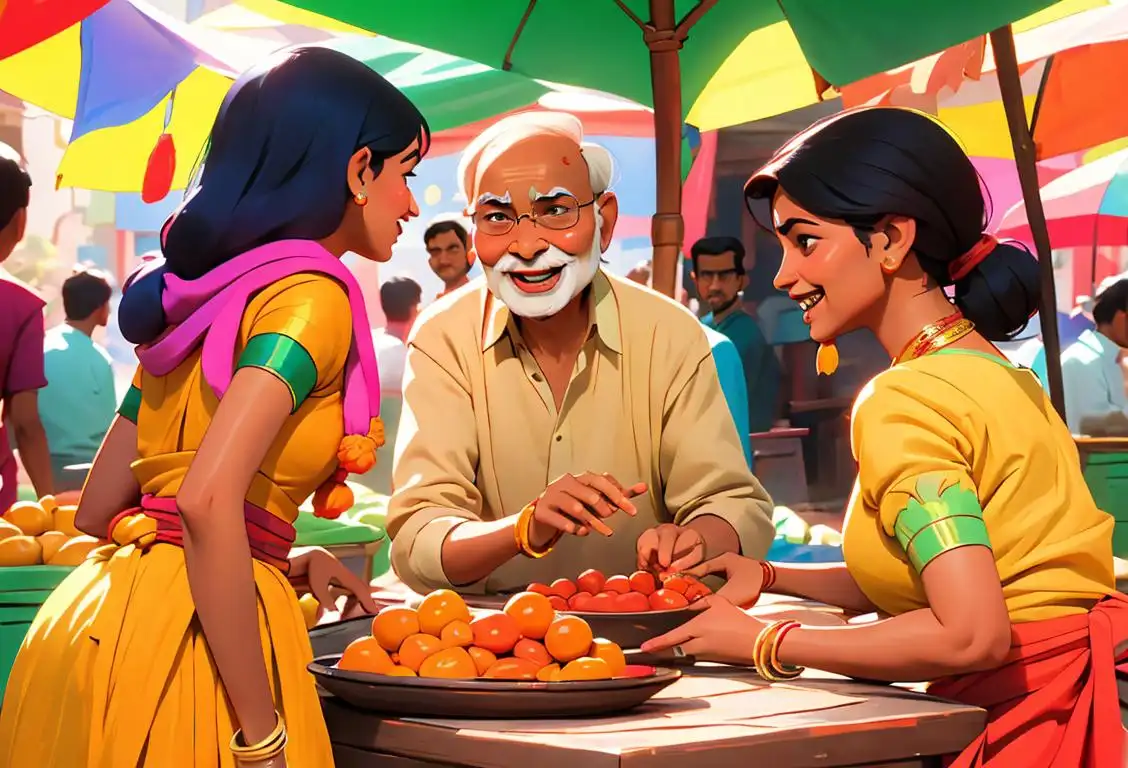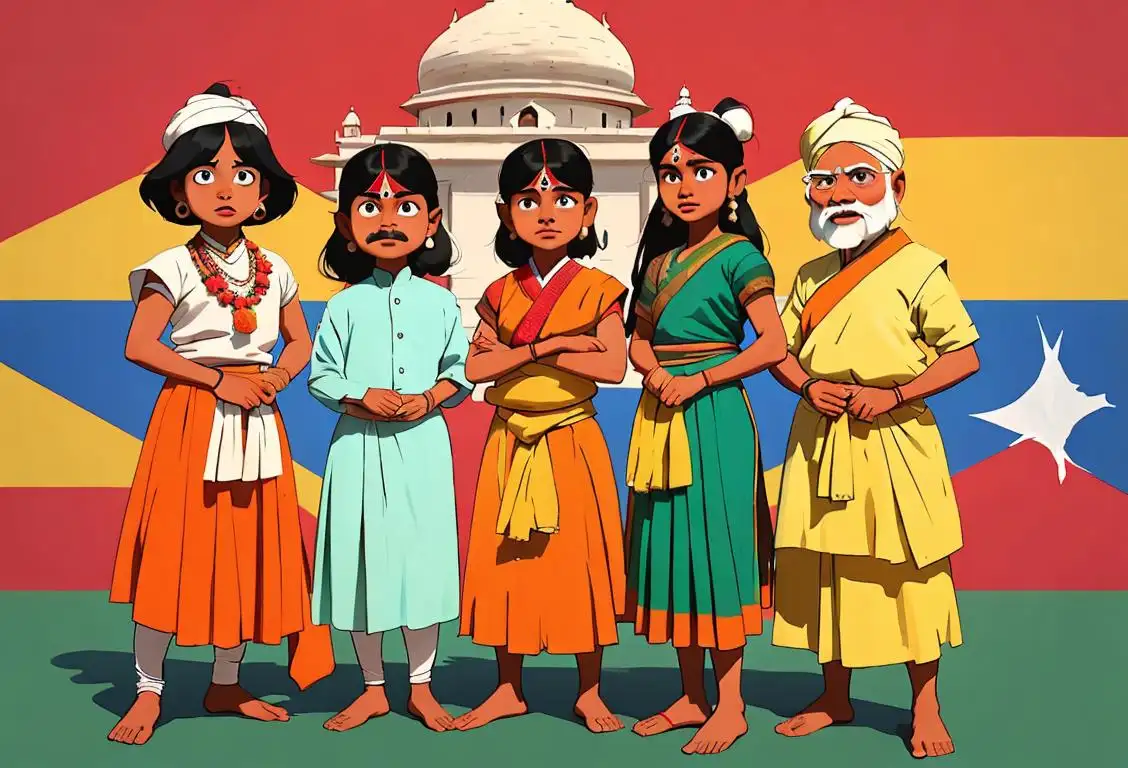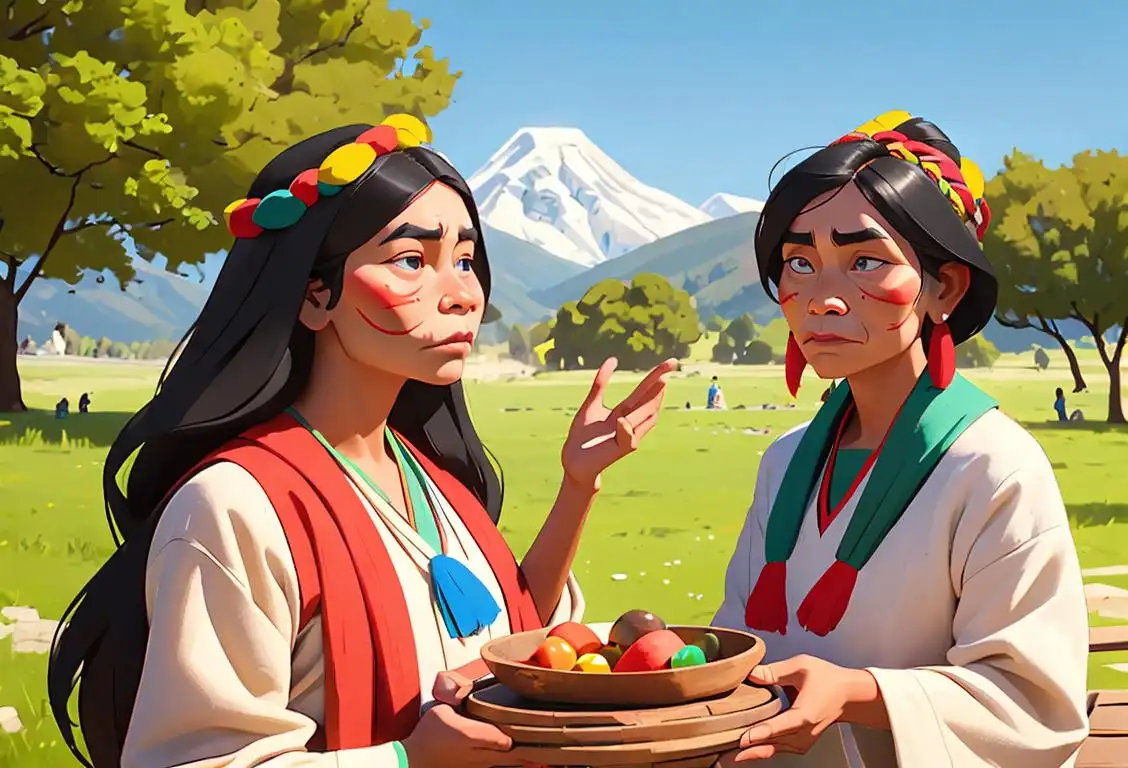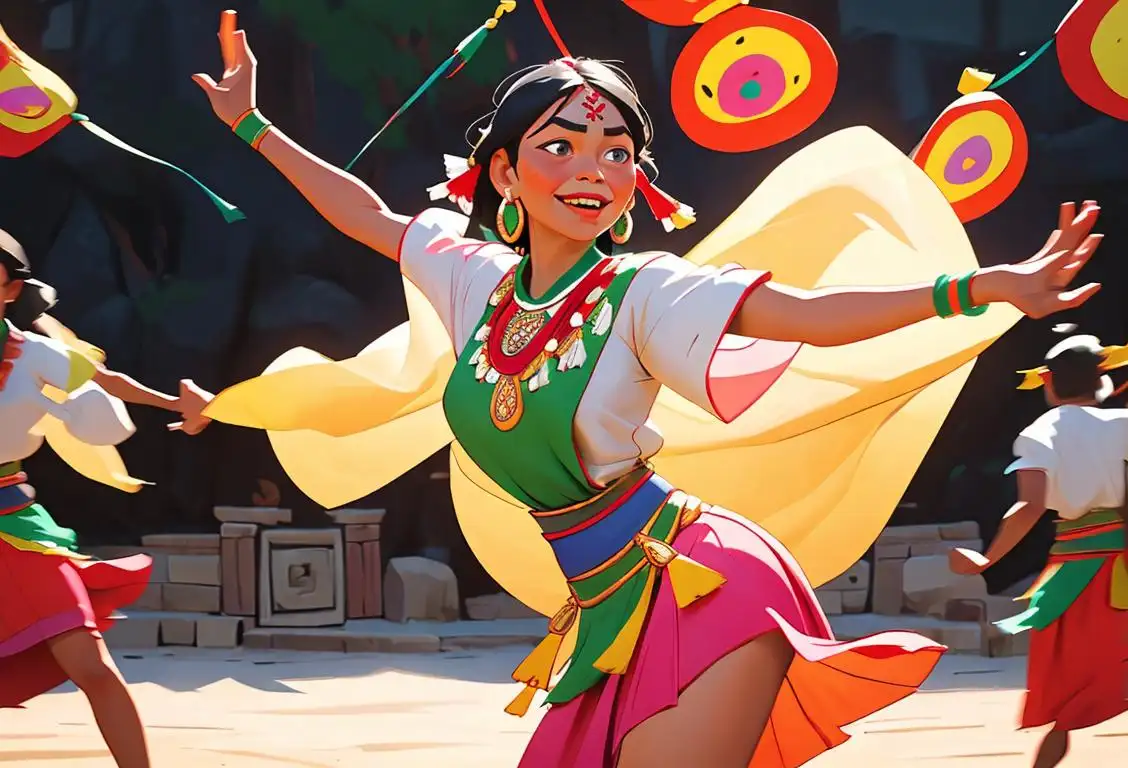National Hindi Day

Welcome to the fascinating world of National Hindi Day! Get ready to immerse yourself in the richness and beauty of the Hindi language, as we celebrate this special occasion. Whether you're a language enthusiast or just want to discover something new, National Hindi Day is the perfect opportunity to explore the wonders of this incredible language.
When is Hindi Day?
It's national hindi day on the 14th September.
The Origins of National Hindi Day
National Hindi Day, observed on September 14th, is a festive celebration that honors the significance of Hindi as one of India's official languages. The day marks the birthday of Beohar Rajendra Simha, an eminent Hindi scholar and playwright who played a significant role in promoting the language.
Beohar Rajendra Simha was born on September 14, 1865, in Hoshangabad, Madhya Pradesh, India. He dedicated his life to the development and preservation of Hindi, seeing it as a vital part of India's cultural identity. Through his tireless efforts, Simha contributed to the standardization of the Devanagari script, which is used to write Hindi.
Recognizing the tremendous impact of Hindi on Indian culture, education, and literature, the Indian government officially established National Hindi Day in 1949. Since then, this day has been celebrated across the country to promote the love and importance of Hindi.
Celebrations and Activities
On National Hindi Day, various activities and events take place throughout India. Schools and educational institutions organize special programs to raise awareness about the Hindi language, its literature, and its contributions to Indian history and society.
Students participate in poetry recitation competitions, debates, and storytelling sessions. Cultural events showcasing traditional Hindi music, art, and dance are also organized to celebrate the essence of the language.
Public libraries often hold book exhibitions and workshops to encourage reading and writing in Hindi. Linguistic experts and scholars are invited to deliver speeches and conduct seminars, fostering a greater understanding of the language's nuances and usage.
Preserving the Richness of Hindi
While Hindi has a significant number of speakers globally, National Hindi Day plays a vital role in preserving and promoting the language. It highlights the need to safeguard Hindi's cultural and linguistic heritage, ensuring its continued growth and relevance in a rapidly changing world.
Through advancements in technology, the internet, and social media, people can connect with each other in Hindi, bridging geographical barriers and keeping the language vibrant.
So, on National Hindi Day, let's celebrate the beauty and versatility of Hindi and make an effort to explore and embrace this extraordinary language!
History behind the term 'Hindi'
2019
Introduction of the term 'Hindi'
The term 'Hindi' originated from the Sanskrit word 'Sindhu,' which referred to the Indus River, known as the cradle of the ancient Indus Valley Civilization. Over time, the term 'Sindhu' evolved into 'Hindu' and later transformed into 'Hindi. In its early usage, 'Hindi' referred to the language spoken in the region around the Indus River.
13th century
Introduction of Turkish language
During the Delhi Sultanate in the 13th century, the Turkish language began to have a significant influence on the Indian subcontinent. Turkish words and phrases became integrated into the local languages, including Hindi.
4th century AD
The Birth of 'Hindi'
The term 'Hindi' originates from the Persian word 'Hind', which means 'land of the Indus River'. It was used by Persian-speaking invaders to refer to the region that is present-day India. Over time, 'Hindi' became the term used to refer to the language spoken by the people of this region.
13th century AD
Influence of Persian on Hindi
During the Delhi Sultanate, Persian had a significant influence on the development of Hindi. Persian vocabulary and grammatical structures were adopted into the Hindi language, leading to the birth of a new form of language known as 'Hindvi' or 'Zaban-e-Hindvi'. This fusion of Persian and Hindi laid the foundation for the modern Hindi language.
14th century
Development of Hindi literature
During the 14th century, Hindi started to gain prominence as a literary language. The famous poet and philosopher, Amir Khusrow, played a crucial role in the development and popularization of Hindi literature. His writings and compositions enriched the Hindi language, making it more expressive and accessible to people.
17th century
Development of Hindustani language
In the 17th century, the Indo-Aryan languages spoken in the northern regions of the Indian subcontinent started to merge, giving rise to a new language known as Hindustani. Hindustani combined elements from various local dialects, including the Turkish-influenced Hindi.
19th century AD
Standardization of Hindi
In the 19th century, Hindi underwent a process of standardization. The efforts of scholars and linguists led to the development of a standardized form of Hindi known as 'Khari Boli'. This new standardized version was based on the dialect spoken in and around Delhi and became the basis for the modern Hindi language.
19th century
Standardization of Hindi
In the 19th century, a movement called the Hindi-Urdu controversy emerged. The goal was to establish Hindi as a distinct language from Urdu, which was primarily influenced by Persian and Arabic. During this period, renowned Hindi scholars like Bhartendu Harishchandra worked towards standardizing the Hindi language, giving it a distinct identity and script.
19th century
Emergence of Hindi as a distinct language
In the 19th century, Hindi started to emerge as a distinct language with its own standardized grammar and vocabulary. This development was driven by efforts to promote Hindi as a means of unifying the Hindi-speaking regions of India.
1949
Adoption of Hindi as an official language
After India gained independence from British colonial rule, the Indian Constitution recognized Hindi as one of India's official languages. The decision to adopt Hindi as an official language aimed to unite the diverse linguistic communities of India, while also preserving the cultural heritage associated with the language.
1947
Recognition of Hindi as an official language
With the partition of India in 1947, Hindi and English were recognized as the official languages of the newly independent India. Hindi, written in the Devanagari script, became the official language for the central government and several state governments.
20th century AD
Recognition of Hindi as an Official Language
After India gained independence in 1947, Hindi was recognized as one of the official languages of the country. It was given this status due to its widespread usage and its association with the cultural identity of a majority of the population. Today, Hindi is one of the most widely spoken languages in the world and serves as a symbol of India's rich linguistic diversity.
2003
Recognition of Hindi as a classical language
In 2003, the Government of India officially recognized Hindi as a 'classical language.' This recognition acknowledged the rich history, literature, and cultural significance of Hindi. It positioned Hindi alongside languages like Tamil and Sanskrit, which also received the same recognition.
1950
Inclusion of Hindi in the Indian Constitution
In 1950, Hindi was included in the Eighth Schedule of the Indian Constitution, which lists the recognized languages of India. This step further solidified the status of Hindi as one of the official languages of the country.
2003
Declaration of Hindi Diwas
In 2003, September 14th was declared as Hindi Diwas (Hindi Day) to celebrate the historic importance of Hindi and to promote its rich literary and cultural heritage. It is a day to honor the Hindi language and its contributions to Indian society.
Did you know?
Did you know that Hindi is the fourth most spoken language in the world? It is spoken by over 500 million people worldwide!Tagged
awareness culture languageFirst identified
14th September 2015Most mentioned on
14th September 2020Total mentions
172Other days
Hindi Day
Asl Day
Language In India One Day
Indigenous Language Day
Cursing Day
Goth Day
Eat What You Want Day
Noodle Day
History Day
Indigenous Day








